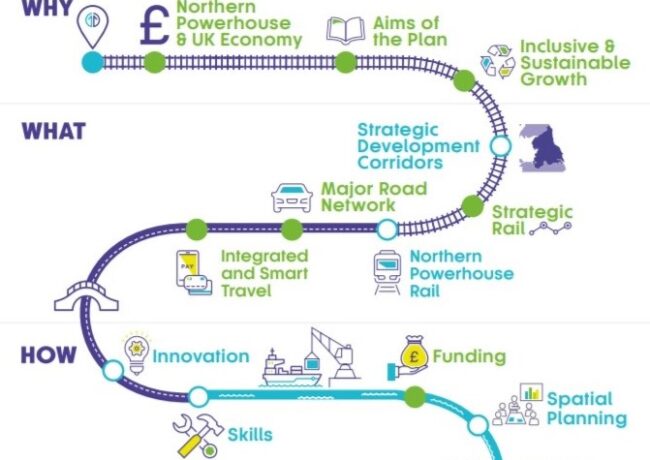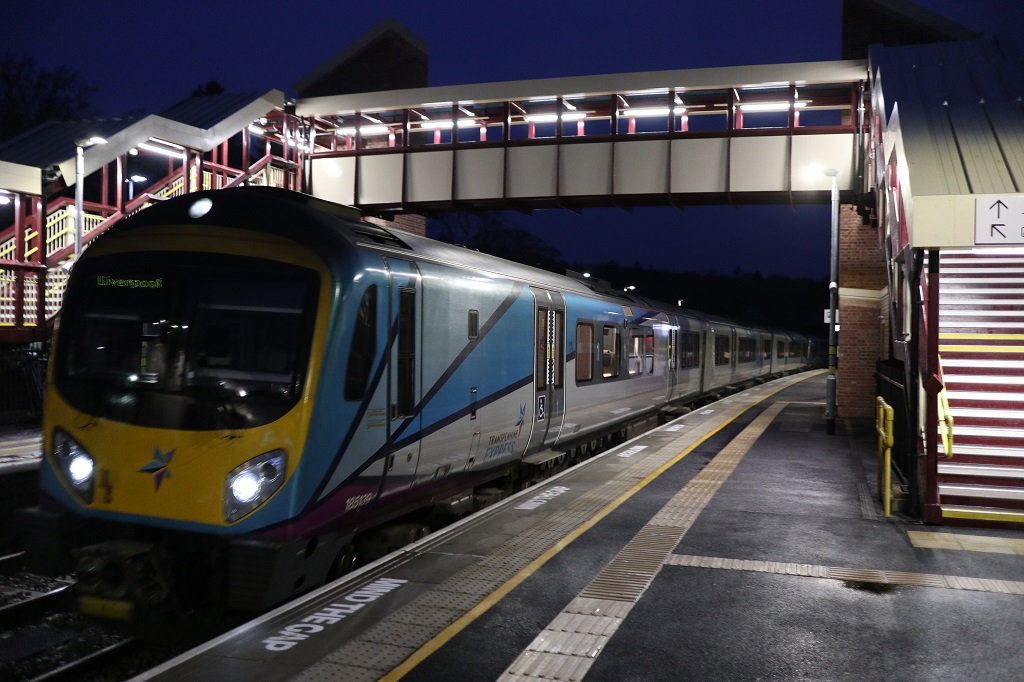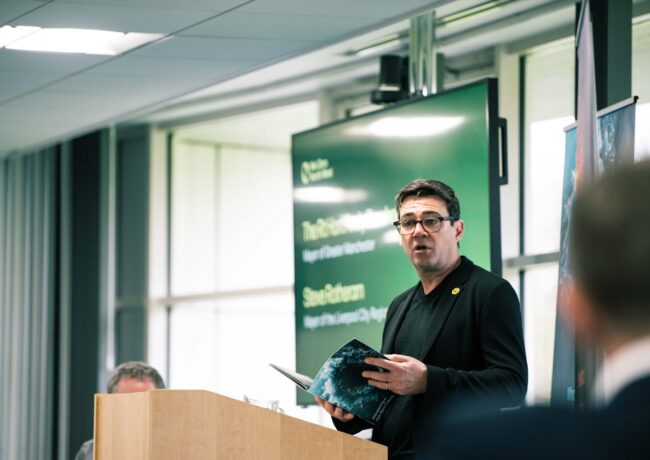TfN sets out £70bn investment blueprint
Transport for the North has released its draft proposals for infrastructure development over the next 30 years.
The Strategic Transport Plan (STP) and corresponding Investment Programme are designed to rebalance decades of underinvestment, said TfN, which added that the programme could contribute towards an additional £100bn in economic growth for the North’s economy, creating 850,000 extra jobs.
Barry White, chief executive, said: “The Strategic Transport Plan is a hugely important document for the North. It is our vision for a prosperous pan-Northern future and outlines how investment in transport could transform our economy.
“For the people of the North, this will mean more choice over where they live and work, access to higher quality jobs and better connections to friends and families. It will mean our businesses have more opportunity to collaborate, trade and grow in a sustainable way.
“This final Plan will be a statutory document written by the North, for the North, and will be our blueprint to deliver transformational change and leave a legacy for future generations.”
Overarching goals for the STP are to better connect the whole of the North, with short, medium and long term plans making it easier to move goods and people to, from and within the North. The plan makes the case to increase spending on strategic transport by around £50 per head until 2050.
The STP includes major road projects and Northern Powerhouse Rail, for which a strategic outline business case has now been completed. NPR seeks a dramatic reduction in journey times between the region’s cities, and greater service frequencies, effectively making journeys such as Liverpool-Manchester a Metro-style “turn up and go” service: Liverpool-Manchester could be served by up to six trains an hour with a journey time of 26 minutes.
The plans will be considered by TfN’s board, which will meet on 7 February in Chester. Subject to approval here, the plans will be officially launched on 11 February in Sheffield at TfN’ inaugural conference.
From 11 February onwards, these proposals will become TfN’s statutory advice to Government on what the ongoing priorities are for enhancing sustainable and inclusive connectivity across the North.
Funding is obviously a key issue. In the STP, TfN states that somewhere between £39bn and £43bn can already be expected over the period through Highways England’s road investment strategy and Network Rail’s planned control period. It believes the need to find a further £20bn-plus to be an “ambitious but realistic” scale of programme, being in line with recommendations from the National Infrastructure Commission.
In addition to the public money required, TfN said that there will be opportunities for private sector investment, such as market-led rail proposals and combined transport and energy proposals.
Most of the projects outlined in the STP are already live or in the planning process, such as link road or bypass projects in Congleton, Middlewich, Poynton and St Anne’s, cycling and walking plans in Greater Manchester, and the replacement of rolling stock by Merseytravel.
The Liverpool City Region also has £40m-plus earmarked for sustainable transport enhancement schemes, along with plans for new Mersey ferries.
In terms of aspirations for long term rail improvements, the improvement of trans-Pennine connections, including the oft-mentioned Manchester-Leeds target journey time of 40 minutes, is included, along with building capacity for a greater volume of inter-urban services.
Slightly longer term, but still scheduled before 2027, are such projects as making Preston and Carlisle stations HS2-ready, and other Northern Powerhouse Rail projects, along with road schemes including the dualling of the A500 from Crewe to the M6. The investment plan also sets out some detail on the later stages of Northern Powerhouse Rail.
The STP sets out as a priority seven strategic development corridors, crossing local administrative boundaries to look at how connectivity can be improved in various geographic economies.
Of the seven strategic development corridors identified by TfN, the North West is included in five: Connecting the Energy Coasts, West & Wales, Central Pennines, West Coast–Sheffield city region, and Southern Pennines.
Both the strategic transport plan and the investment programme can be downloaded from here.




